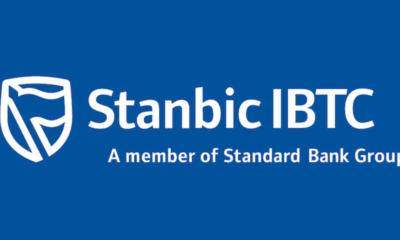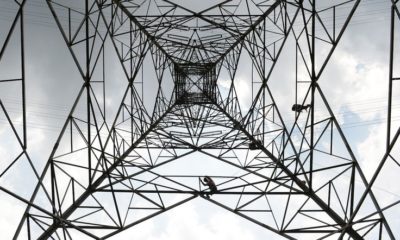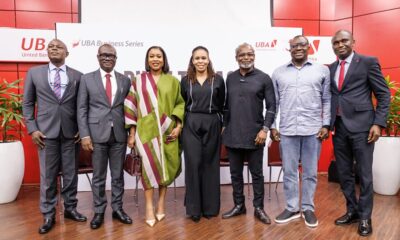Business
Power Distribution Companies Garner N292.71bn in Q1 Despite Electricity Woes

Business
Manufacturers Knock CBN Over 27.25% Interest Rate Hike
Business
Presidency Proposes NIMASA AND NPA Charge in Naira to Strengthen Currency
Merger and Acquisition
Flour Mills Receives Regulatory Approval for Minority Shareholder Buyout
-

 Naira4 days ago
Naira4 days agoDollar to Naira Black Market Exchange Rate Today 24th, September 2024
-

 Business4 weeks ago
Business4 weeks agoUBA Business Series: Experts Site Innovation, Persistence, Regular Assessments, Key for Lasting Businesses
-

 Company News4 weeks ago
Company News4 weeks agoVolvo to Launch Electric Truck With 600 km Range
-

 Economy4 weeks ago
Economy4 weeks agoNigeria to Raise VAT to 10% Amid Revenue Crisis, Says Fiscal Policy Chairman
-

 Dividends3 weeks ago
Dividends3 weeks agoStanbic IBTC to Pay N25.913 Billion in Interim Dividend for H1 2024
-

 Cryptocurrency4 weeks ago
Cryptocurrency4 weeks agoBusha Digital and Quidax Receive SEC Nod to Launch Crypto Platforms in Nigeria
-

 Banking Sector4 weeks ago
Banking Sector4 weeks agoZenith Bank Maintains Leading Position in Profitability as PBT Soars to N727 Billion in H1 2024
-

 Nigerian Exchange Limited2 weeks ago
Nigerian Exchange Limited2 weeks agoNigerian Exchange Recovers from Early Week Losses, Market Value Hits N55.6 Trillion


















